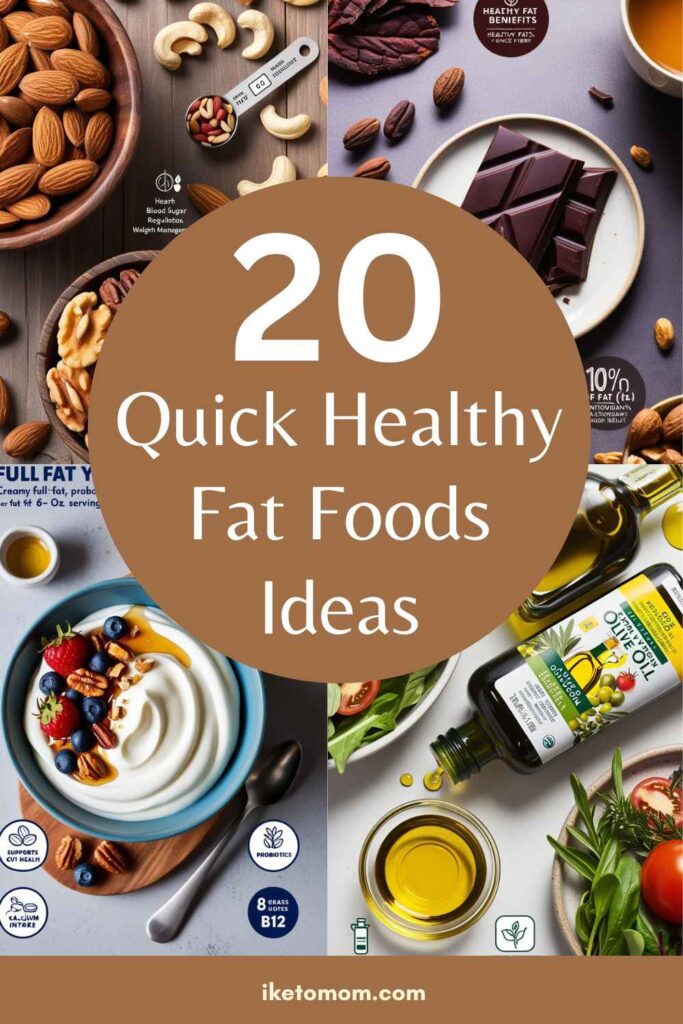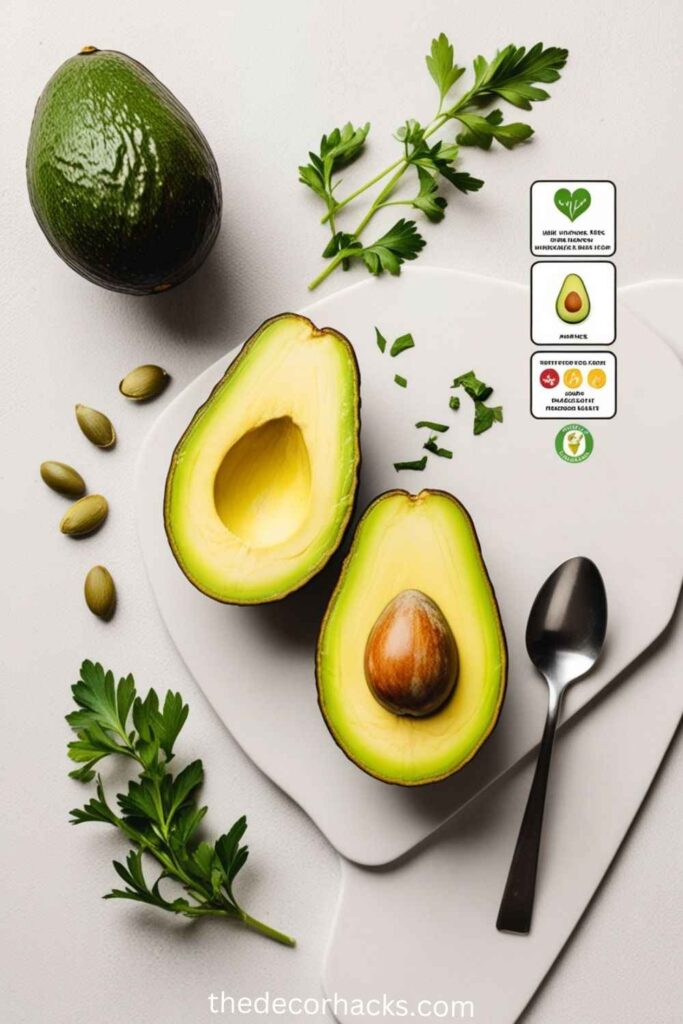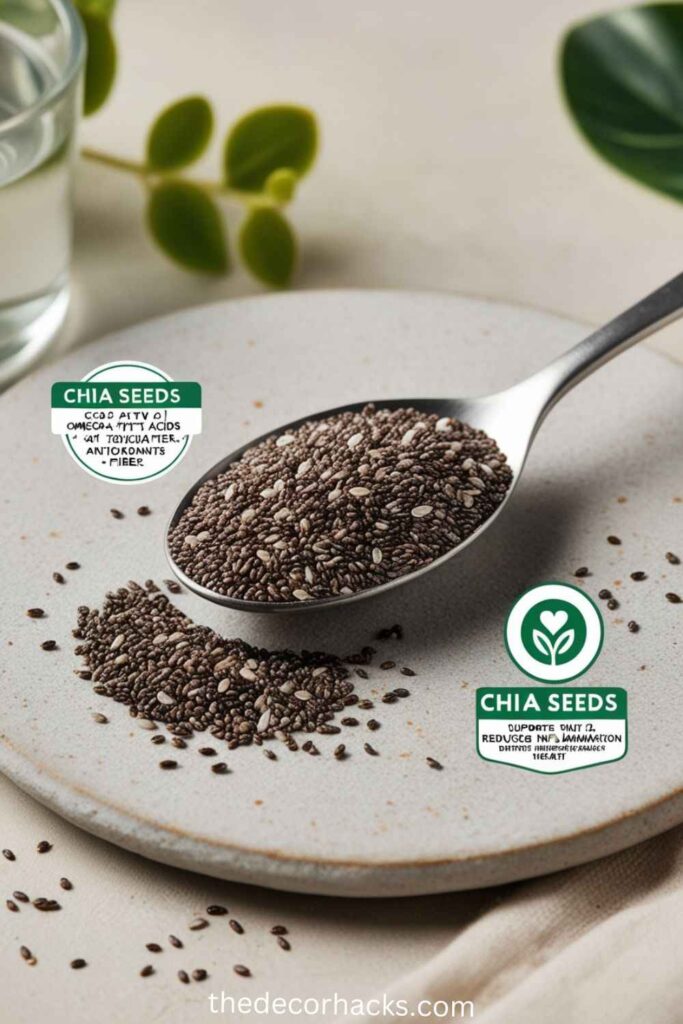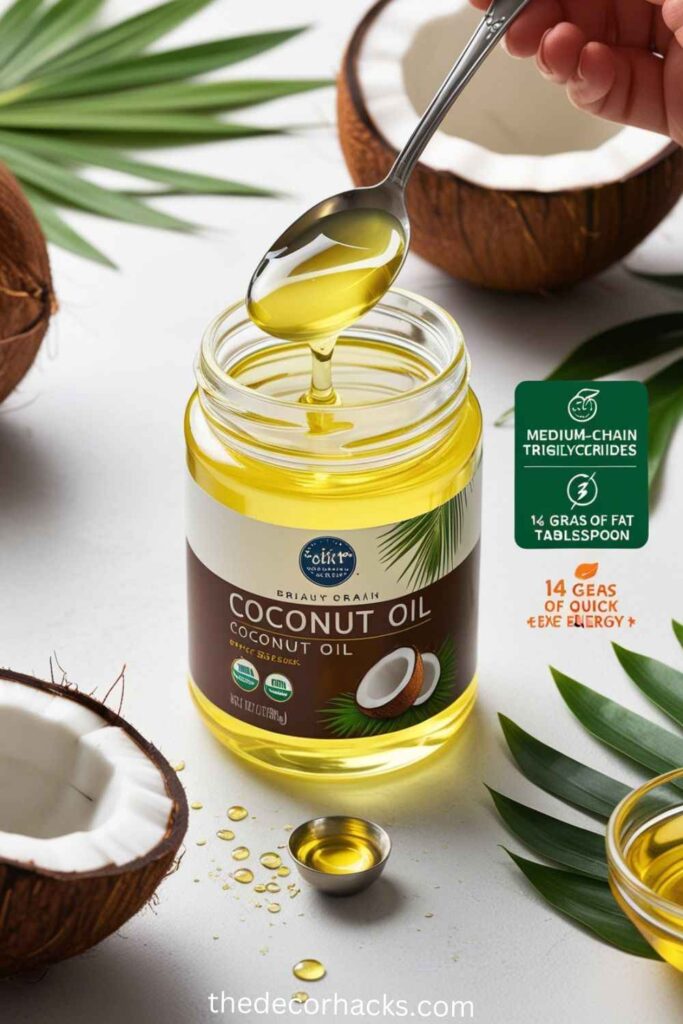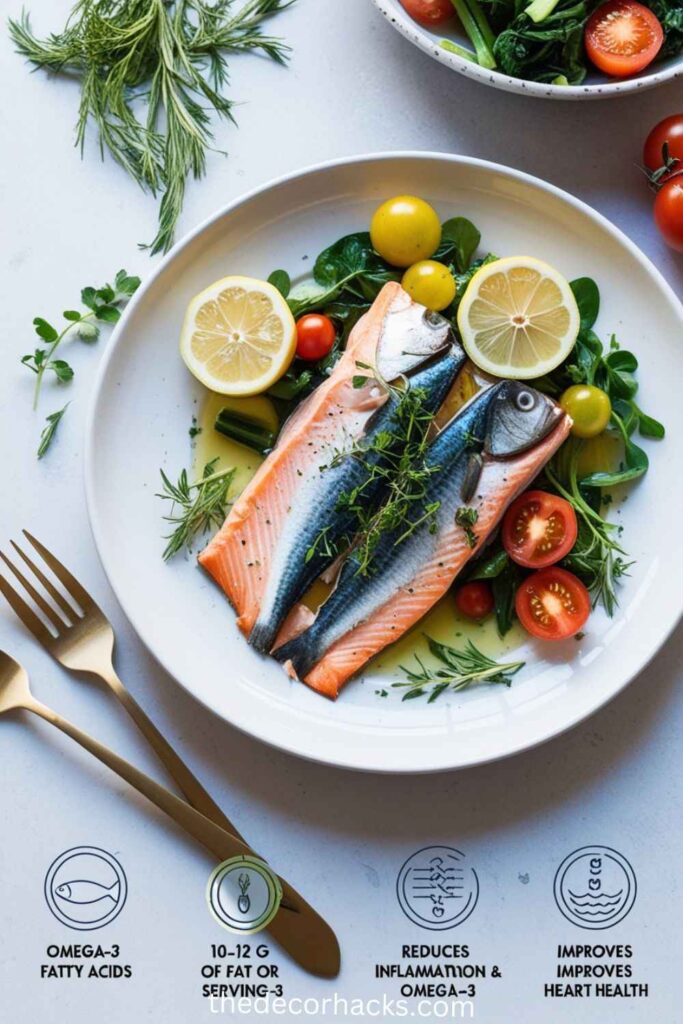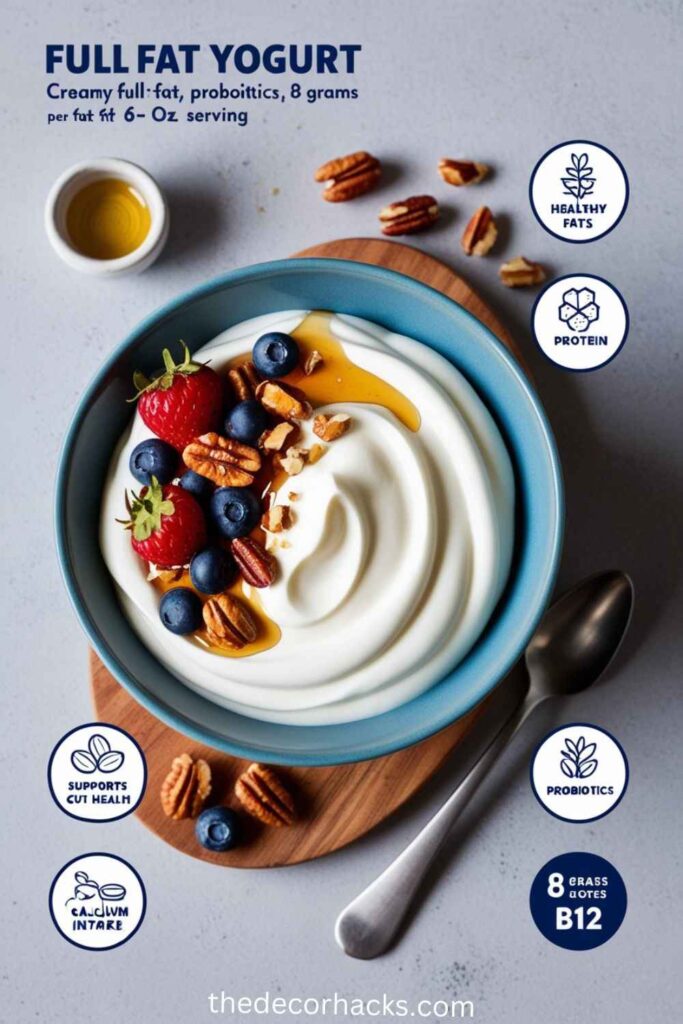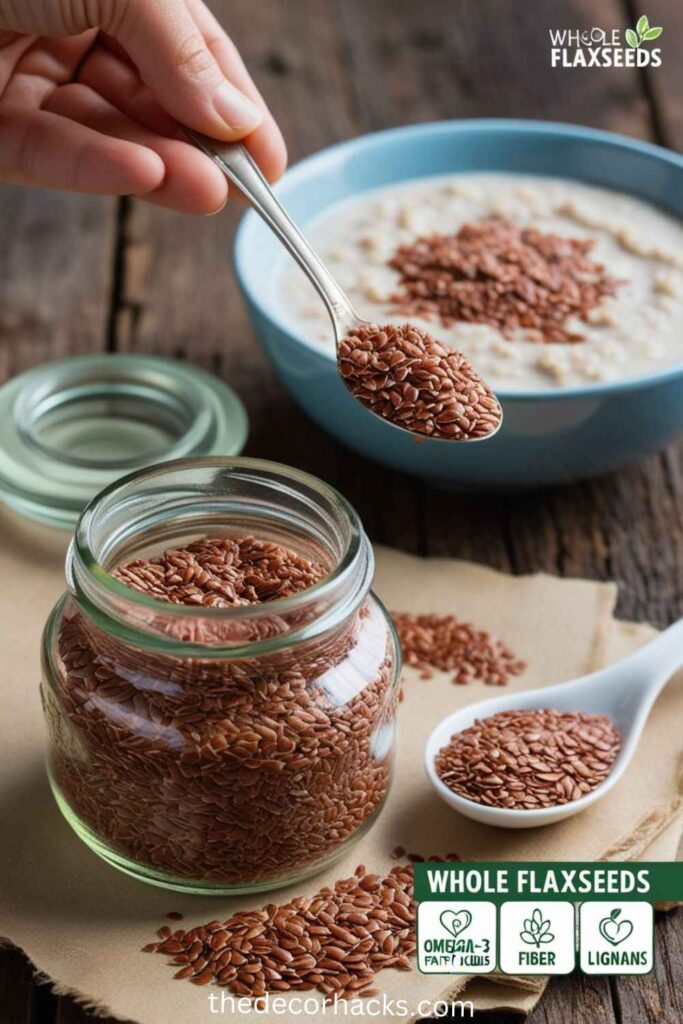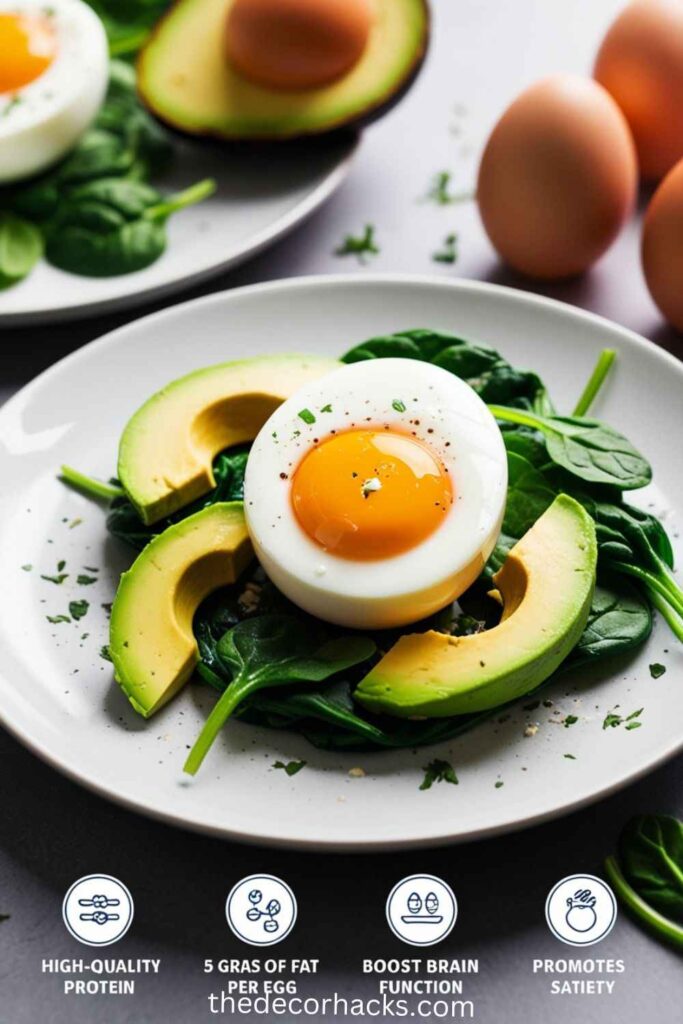Healthy Fat Foods Ideas play a crucial role in maintaining overall health and should be an essential part of a balanced diet. Unlike unhealthy fats, such as trans fats and excessive saturated fats, healthy fats—like monounsaturated and polyunsaturated fats—offer numerous benefits that contribute to your well-being. These fats provide a concentrated source of energy, supporting various bodily functions.
Incorporating healthy fats into your diet can help improve energy levels by offering a long-lasting, stable fuel source for the body. They also support brain function, as the brain is composed largely of fat and relies on these nutrients for cognitive health and performance. Moreover, healthy fats are known to promote heart health by helping to regulate cholesterol levels, reduce inflammation, and lower the risk of heart disease.
By including foods rich in healthy fats, you can enhance your nutrition, improve your mood, and promote long-term health. The key is choosing nutrient-dense fat sources like avocados, nuts, seeds, and fatty fish, which provide not only healthy fats but also essential vitamins, minerals, and antioxidants.
Healthy Fat Foods Ideas
1. Avocados
Avocados are often hailed as a superfood, thanks to their rich nutritional profile and numerous health benefits. They are an excellent source of monounsaturated fats, which are heart-healthy fats known for reducing bad cholesterol levels. A medium-sized avocado contains approximately 15 grams of fat, with most of it being monounsaturated fat. In addition to healthy fats, avocados are packed with fiber, vitamins E, K, and B6, as well as essential minerals like potassium and magnesium.
Nutrition Information:
- High in monounsaturated fats, particularly oleic acid, which supports heart health
- A medium avocado contains about 15 grams of fat, mostly monounsaturated fats
- Rich in fiber, with about 10 grams of fiber per avocado
- Loaded with vitamins E, K, and B6, which are important for skin, eye, and immune health
- Provides essential minerals like potassium, which helps regulate blood pressure
Benefits:
- Supports Heart Health: The monounsaturated fats in avocados help lower LDL (bad) cholesterol levels while raising HDL (good) cholesterol, reducing the risk of heart disease.
- Promotes Satiety: Avocados are rich in fiber and healthy fats, which help increase feelings of fullness, making them an ideal food for weight management and controlling appetite.
- Provides Essential Nutrients for Skin and Eye Health: The vitamins E and K found in avocados contribute to healthy skin by protecting it from oxidative damage, while vitamin B6 plays a key role in maintaining good vision and eye health.
Incorporating avocados into your meals—whether in salads, spreads, smoothies, or as a topping—can not only enhance the flavor of your dishes but also provide you with a range of health benefits.
2. Nuts (Almonds, Walnuts, Cashews, etc.)
Nuts like almonds, walnuts, and cashews are packed with healthy fats, protein, fiber, and essential vitamins, making them an excellent addition to any diet. A single ounce of almonds, for example, contains approximately 14 grams of fat, with 9 grams being heart-healthy monounsaturated fats. These fats play a key role in supporting heart health and reducing inflammation.
Nutrition Information:
- High in healthy fats (monounsaturated and polyunsaturated fats)
- Rich in protein, fiber, and antioxidants
- Almonds: 1 ounce = 14 grams of fat, 9 grams monounsaturated fat
- Walnuts: 1 ounce = 18 grams of fat, rich in omega-3 fatty acids
Benefits:
- Weight Management: The healthy fats and fiber content in nuts help promote satiety, which can reduce overall calorie intake and support weight management.
- Blood Sugar Regulation: Nuts have a low glycemic index, helping to stabilize blood sugar levels and potentially reducing the risk of type 2 diabetes.
- Heart Health: The monounsaturated fats in nuts help reduce LDL (bad) cholesterol levels and support overall cardiovascular health, lowering the risk of heart disease.
Including a variety of nuts in your diet can offer a satisfying, nutrient-dense snack while also delivering numerous health benefits.
3. Chia Seeds
Chia seeds are small but mighty when it comes to their nutritional benefits. Packed with omega-3 fatty acids, fiber, and antioxidants, these tiny seeds are an excellent addition to any diet, particularly for those looking to boost their intake of healthy fats. One tablespoon of chia seeds contains around 3 grams of fat, with the majority being healthy omega-3 fatty acids, which are essential for overall health.
Nutrition Information:
- Rich in omega-3 fatty acids, which are vital for heart and brain health
- High in fiber, with about 5 grams of fiber per tablespoon
- Loaded with antioxidants, helping to protect the body from oxidative stress
- One tablespoon of chia seeds contains 3 grams of fat, mostly omega-3s
Benefits:
- Supports Digestion: The high fiber content in chia seeds aids in digestion, promotes regular bowel movements, and helps prevent constipation.
- Reduces Inflammation: Omega-3s are known for their anti-inflammatory properties, which can help reduce inflammation in the body and lower the risk of chronic diseases.
- Promotes Heart Health: The omega-3s, fiber, and antioxidants in chia seeds help reduce the risk of cardiovascular disease by improving cholesterol levels, reducing blood pressure, and promoting overall heart health.
Chia seeds are incredibly versatile and can be added to smoothies, yogurt, salads, or even baked goods to enhance your nutrient intake and enjoy their many health benefits.
4. Olive Oil
Olive oil is a staple of the Mediterranean diet and is renowned for its health benefits, especially due to its high content of monounsaturated fats and antioxidants. A single tablespoon of olive oil contains approximately 14 grams of fat, with 10 grams being healthy monounsaturated fats. These fats are known for their ability to reduce bad cholesterol levels and support overall cardiovascular health.
Nutrition Information:
- Rich in monounsaturated fats, particularly oleic acid, which supports heart health
- Contains about 14 grams of fat per tablespoon, with 10 grams being monounsaturated fats
- Packed with antioxidants, including vitamin E and polyphenols, which have anti-inflammatory properties
Benefits:
- Reduces Inflammation: The antioxidants and anti-inflammatory compounds in olive oil can help reduce chronic inflammation in the body, lowering the risk of various diseases.
- Improves Heart Health: Olive oil has been shown to improve heart health by reducing LDL (bad) cholesterol levels and increasing HDL (good) cholesterol, promoting healthy blood pressure levels.
- Promotes Healthy Skin: Olive oil’s antioxidant content, particularly vitamin E, helps nourish and protect the skin, promoting a healthy, glowing complexion.
Incorporating olive oil into your daily diet—whether in dressings, cooking, or drizzling over dishes—can offer a wide range of health benefits while adding rich flavor to your meals.
5. Coconut Oil
Coconut oil is a versatile and popular oil known for its unique composition of medium-chain triglycerides (MCTs), which are fats that the body can rapidly convert into energy. Although coconut oil is primarily composed of saturated fat, these MCTs are different from the saturated fats found in animal products and offer various health benefits. One tablespoon of coconut oil contains around 14 grams of fat, mostly saturated fat, but in the form of MCTs, which are more easily metabolized.
Nutrition Information:
- Contains about 14 grams of fat per tablespoon, primarily in the form of MCTs (medium-chain triglycerides)
- MCTs are quickly converted into energy, making coconut oil a quick fuel source
- Provides saturated fat, but it is a healthier form of saturated fat compared to those found in animal products
Benefits:
- Supports Brain Function: MCTs are rapidly converted into ketones, which the brain can use as an alternative energy source, potentially improving cognitive function and mental clarity.
- Provides Quick Energy: Since MCTs are quickly absorbed and converted into energy, coconut oil can provide a fast source of fuel, making it a great addition to pre-workout meals or as a quick energy boost during the day.
- Improves Cholesterol Levels: When used in moderation, coconut oil may improve cholesterol levels by increasing HDL (good) cholesterol and promoting better heart health.
Coconut oil can be used in cooking, baking, or as a skin moisturizer, offering a wide range of uses both in the kitchen and as part of your self-care routine.
6. Fatty Fish (Salmon, Mackerel, Sardines)
Fatty fish like salmon, mackerel, and sardines are excellent sources of healthy fats, particularly omega-3 fatty acids, which are essential for various bodily functions. A 3-ounce serving of salmon, for example, contains about 10-12 grams of fat, with 3-4 grams coming from heart-healthy omega-3s. These fish are also high in protein and offer numerous other vitamins and minerals, making them a powerhouse of nutrition.
Nutrition Information:
- Rich in omega-3 fatty acids, which are vital for brain function, reducing inflammation, and heart health
- A 3-ounce serving of salmon contains about 10-12 grams of fat, including 3-4 grams of omega-3s
- High in protein, vitamins D and B12, and selenium
Benefits:
- Supports Brain Health: Omega-3 fatty acids are crucial for brain health, improving cognitive function and reducing the risk of mental decline.
- Reduces Inflammation: Omega-3s in fatty fish are known for their anti-inflammatory properties, which can help lower the risk of chronic diseases and reduce joint pain and stiffness.
- Improves Heart Health: Regular consumption of fatty fish can improve heart health by reducing blood pressure, lowering cholesterol levels, and decreasing the risk of cardiovascular diseases.
Including fatty fish in your diet, whether grilled, baked, or in a salad, can provide significant health benefits while offering a delicious and nutritious meal option.
7. Full-Fat Yogurt
Full-fat yogurt is a nutritious and versatile food that offers a variety of health benefits. Packed with healthy fats, protein, and probiotics, full-fat yogurt supports digestive health and provides essential nutrients. A 6-ounce serving of full-fat yogurt contains about 8 grams of fat, along with vitamins and minerals that contribute to overall well-being.
Nutrition Information:
- Contains healthy fats, protein, and probiotics for digestive and immune support
- A 6-ounce serving contains around 8 grams of fat, providing a creamy texture and rich taste
- Packed with essential vitamins, including vitamin B12, and minerals like calcium and potassium
Benefits:
- Supports Gut Health: The probiotics in full-fat yogurt help maintain a healthy balance of gut bacteria, improving digestion and supporting immune function.
- Boosts Calcium Intake: Full-fat yogurt is an excellent source of calcium, which is essential for maintaining strong bones and teeth.
- Provides Essential Vitamins: In addition to calcium, full-fat yogurt is rich in other vitamins, including vitamin B12, which is important for red blood cell production and nerve function.
Incorporating full-fat yogurt into your daily diet can improve digestive health, provide important nutrients, and make for a satisfying snack or breakfast option.
8. Flaxseeds
Flaxseeds are small but nutrient-dense seeds that pack a powerful punch when it comes to health benefits. Rich in omega-3 fatty acids, fiber, and lignans, flaxseeds provide a variety of nutrients that support overall health. One tablespoon of flaxseeds contains around 3 grams of fat, mostly from omega-3 fatty acids, making them an excellent plant-based source of healthy fats.
Nutrition Information:
- High in omega-3 fatty acids, fiber, and lignans
- One tablespoon of flaxseeds contains about 3 grams of fat, primarily omega-3 fats
- Rich in antioxidants, which help protect the body from oxidative stress
Benefits:
- Supports Heart Health: Omega-3s and lignans in flaxseeds help reduce inflammation and promote heart health by improving cholesterol levels and reducing blood pressure.
- Reduces Inflammation: The omega-3s in flaxseeds have anti-inflammatory properties that can help reduce chronic inflammation in the body, lowering the risk of various diseases.
- Aids in Digestion: The fiber content in flaxseeds promotes regular bowel movements and supports a healthy digestive system, helping to prevent constipation and promote gut health.
Flaxseeds can be easily added to smoothies, oatmeal, baked goods, or sprinkled over salads to reap their health benefits while boosting the nutritional content of your meals.
9. Dark Chocolate (70% or Higher)
Dark chocolate, especially varieties with 70% cocoa or higher, is not only a delicious treat but also a powerful source of antioxidants and healthy fats. A 1-ounce piece of dark chocolate contains about 10 grams of fat, along with beneficial compounds that promote health. The high cocoa content provides fiber, antioxidants, and essential minerals, making it a nutritious indulgence when consumed in moderation.
Nutrition Information:
- Contains healthy fats, antioxidants, and fiber
- A 1-ounce piece contains about 10 grams of fat, much of it from healthy cocoa butter
- Rich in flavonoids, which are powerful antioxidants that help protect the body from oxidative stress
Benefits:
- Reduces Stress: Dark chocolate contains compounds that promote the release of endorphins and serotonin, which can help reduce stress and improve mood.
- Improves Heart Health: The flavonoids in dark chocolate have been shown to support heart health by improving blood flow, reducing blood pressure, and lowering the risk of heart disease.
- Provides a Mood Boost: The combination of endorphins, serotonin, and magnesium in dark chocolate can enhance mood and provide a natural energy boost, making it a great option for a quick pick-me-up.
Enjoying a piece of dark chocolate with a high cocoa content can offer both a satisfying treat and a wealth of health benefits when consumed mindfully.
10. Eggs (Whole Eggs)
Whole eggs are an excellent source of high-quality protein and healthy fats, making them a versatile and nutritious food. One large egg contains about 5 grams of fat, including 1.5 grams of saturated fat, but it is packed with essential nutrients such as vitamins A, D, E, and B12. Eggs also provide all nine essential amino acids, which are crucial for muscle building and recovery.
Nutrition Information:
- High in protein, containing about 6 grams per large egg
- Contains 5 grams of fat, including 1.5 grams of saturated fat
- Rich in essential vitamins and minerals like vitamins A, D, E, and B12, and choline
Benefits:
- Supports Muscle Growth: The high-quality protein in eggs supports muscle repair and growth, making them a great option for those looking to build muscle or recover from workouts.
- Boosts Brain Function: Eggs are an excellent source of choline, a nutrient that supports brain function, memory, and overall cognitive health.
- Helps with Satiety: The protein and fat in whole eggs help promote feelings of fullness, reducing hunger and supporting weight management by preventing overeating.
Incorporating whole eggs into your diet, whether scrambled, boiled, or poached, can provide significant nutritional benefits while supporting your overall health.
FAQ
What are healthy fats, and why are they important?
Healthy fats are unsaturated fats, including monounsaturated and polyunsaturated fats, which provide essential fatty acids that our bodies need. These fats help improve heart health, support brain function, and promote satiety. Unlike trans fats or excessive saturated fats, healthy fats can reduce inflammation and lower bad cholesterol levels.
How can I incorporate healthy fats into my diet quickly?
You can incorporate healthy fats into your diet by adding foods like avocados, nuts, seeds, olive oil, and fatty fish to your meals. Simple ways include drizzling olive oil on salads, adding chia or flaxseeds to smoothies, enjoying a handful of almonds as a snack, or including avocado in your toast or salads.
Are healthy fats good for weight management?
Yes, healthy fats can help with weight management by promoting satiety and reducing hunger. They keep you feeling full for longer periods, which may help prevent overeating and snacking on less healthy options. Just be mindful of portion sizes, as fats are calorie-dense.
Can I eat healthy fats every day?
Yes, consuming healthy fats daily is beneficial for your overall health, but it’s important to eat them in moderation. Including a variety of healthy fat sources in your diet—such as nuts, seeds, avocado, and fatty fish—helps ensure you get a balance of essential fatty acids, vitamins, and minerals.

I’m Priscilla Swahn, a registered dietitian with a master’s degree in nutritional sciences. With over a decade of experience in holistic nutrition, I specialize in creating delicious keto recipes to help you enjoy a healthy lifestyle. On iKetoMom, you’ll find a variety of recipes for every meal—hearty breakfasts, satisfying lunches, mouthwatering dinners, indulgent desserts, and refreshing drinks. My recipes make keto living easy and enjoyable for the whole family. Featured in EatingWell and MindBodyGreen, I also collaborate with health centers and corporate companies to share my expertise. Join me and discover the joy of keto cooking!

